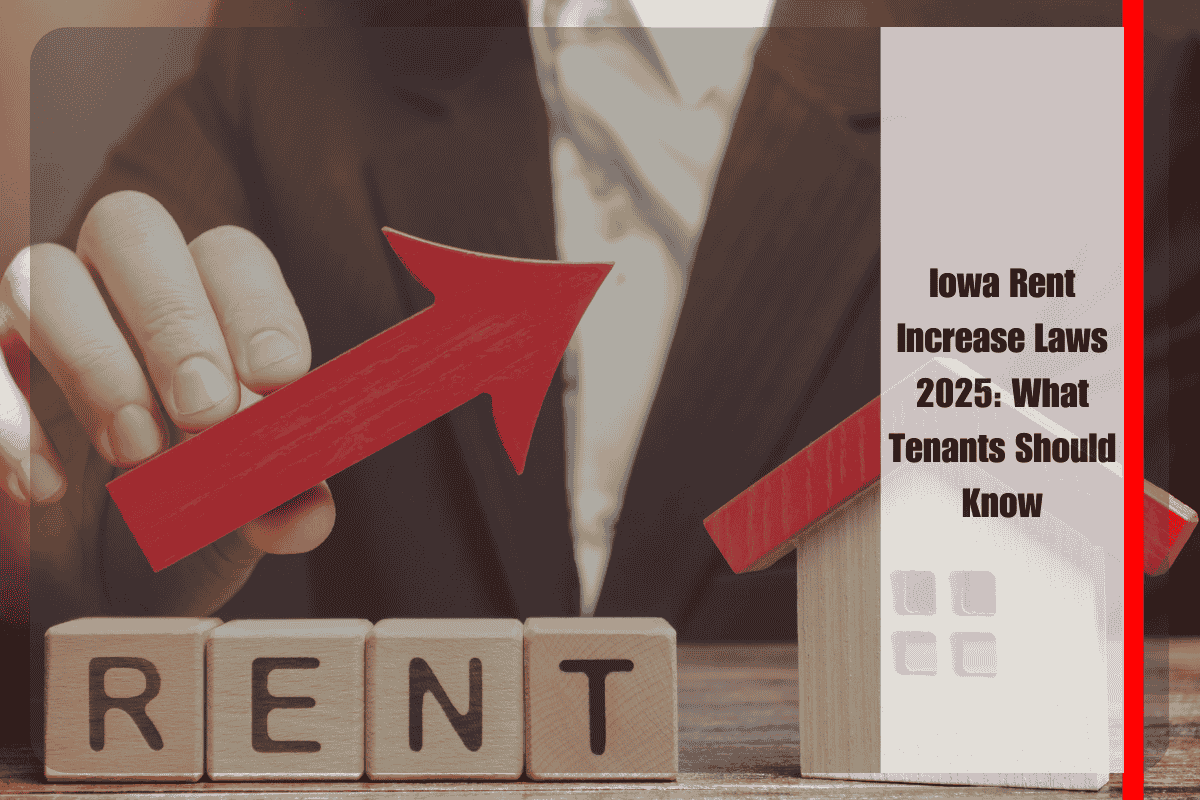In Iowa, tenants and landlords must navigate rent increase laws that emphasize notice, fairness, and legal protections, despite the absence of any statewide rent control limits in 2025. Unlike some states where rent increases are capped by law, Iowa grants landlords considerable freedom in determining rent amounts. There is no statutory ceiling on how much landlords can raise rent, but rent increases cannot be retaliatory or discriminatory, in adherence to federal and state fair housing laws. This means landlords cannot raise rents as punishment against tenants for complaints or exercise of legal rights, nor can they discriminate based on protected classes.
For tenants on month-to-month leases, Iowa law mandates landlords to provide a minimum of 30 days’ written notice before any rent increase can take effect. This notice requirement is designed to give tenants adequate time to adjust their budgets or find alternative housing if needed. The 30-day notice applies only before the increment begins, ensuring tenants are informed prior to the start of the new rent period. Importantly, rent cannot be increased mid-lease unless such an increase is explicitly allowed by the lease agreement.
In the case of fixed-term leases, which commonly span one year, the rent amount is generally locked in for the duration of the lease. Landlords are prohibited from increasing rent before the lease expires. Any change in rent must wait until the lease term ends, at which point landlords can propose new rental terms, including increased rent. Tenants then have the choice to accept the new terms or vacate. This structure provides tenants with stability and predictability during the lease period.
While Iowa bans rent control, it imposes requirements on landlords to give proper notice to tenants and prohibits certain unfair rent increase practices. Among these protections is the ban on rent hikes based on retaliation, such as when tenants report housing code violations or request necessary repairs. Similarly, landlords cannot impose rent increases in a discriminatory fashion, which is enforced by the Iowa Civil Rights Commission and federal housing laws.
Late fees connected to rent payments are regulated in Iowa. For rental amounts under $700, the maximum allowable late fee is $12 per day, capped at $60 per month. For rents above $700, landlords may charge up to $20 per day as a late fee. These limits prevent excessive penalty charges on tenants while allowing landlords to incentivize on-time payments.
For tenants renting units with government-assisted housing such as those funded through HOME or the National Housing Trust Fund, additional rent limits may apply. These programs have annual rent ceilings reviewed by Iowa Finance Authority to ensure affordability for low-income households, with adjustments made based on income and market factors. In such cases, rent increases are subject to these program-specific restrictions and require approval.
Overall, tenants in Iowa should carefully review their lease agreements for provisions regarding rent increases, particularly any clauses that might allow mid-lease adjustments. They should also be aware of their legal rights to receive written notice at least 30 days before any rent increase and to contest increases that appear retaliatory or discriminatory. Good communication with landlords, understanding legal frameworks under the Iowa Uniform Residential Landlord and Tenant Law (Chapter 562A), and seeking assistance from tenant advocacy groups or legal aid can help tenants navigate these processes.a
From a landlord’s perspective, while the state allows setting and adjusting rent freely, it is advisable to keep rent increases reasonable and in line with local market rates to avoid a high tenant turnover rate. Proper notice and adherence to legal safeguards help maintain good landlord-tenant relationships and prevent costly disputes.
Although Iowa does not have rent control laws, it prescribes important procedural protections for tenants against sudden or unfair rent hikes, reinforcing stability and fairness in the rental housing market in 2025. Tenants should be vigilant about their rights regarding notice periods and justifiable rent increases, while landlords must ensure compliance with notice requirements and non-discrimination statutes to lawfully raise rents. This balance supports a fair rental environment in Iowa’s housing landscape today.












